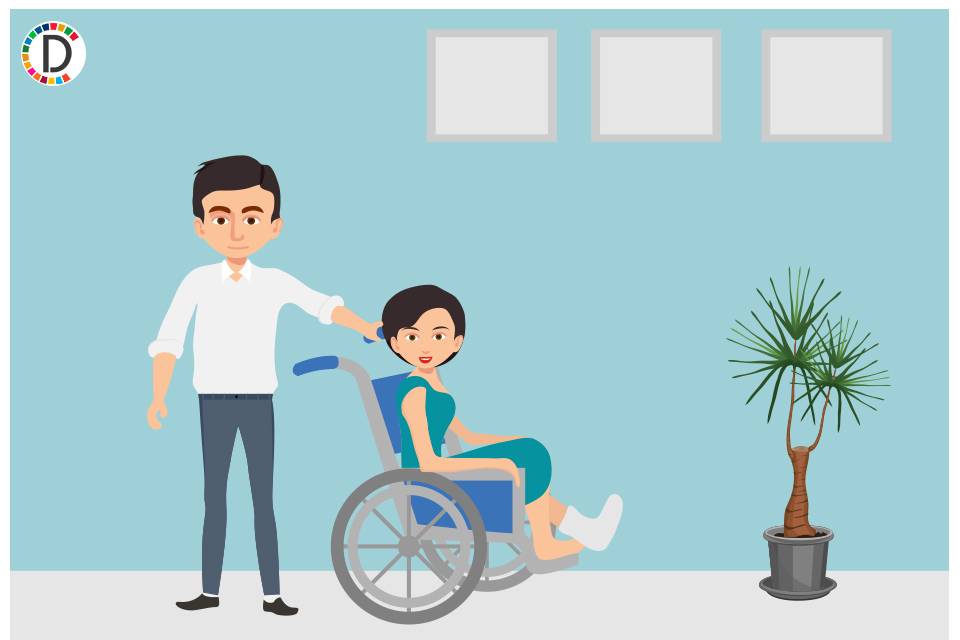Baltics open Europe's first pandemic 'travel bubble' as curbs ease

L ithuania, Latvia and Estonia opened their common borders at the stroke of midnight, creating the first "travel bubble" within the European Union in a bid to jump-start economies broken down by the coronavirus pandemic.
A dozen Estonian border guards removed all signs directing vehicles to stop at the border and huddled together at the roadside for cake and coffee. "We have the little celebration because the border is now open again," officer Martin Maestule told Reuters on Friday just after midnight as the first cars sped through on the region's reopened main road.
Citizens and residents of the three generally sparsely populated Baltic nations are now free to travel within the region, though anyone entering from outside will need to self-isolate for 14 days. "The Baltic Travel Bubble is an opportunity for businesses to reopen, and a glimmer of hope for the people that life is getting back to normal," Lithuanian Prime Minister Saulius Skvernelis said in a statement.
The neighbours opened as the EU executive seeks to coax the 27 member states to reopen internal borders and restart wider travel, albeit with safety measures such as requiring people to wear face masks on planes. New coronavirus infections in the three Baltic republics have slowed to a trickle with none of the countries reporting more than a dozen new cases on Thursday. Authorities have loosened lockdowns since late April.
The region as a whole has recorded fewer than 150 deaths from the disease - far below individual larger euro zone countries such as Italy, Spain, France or Germany. "The Baltic states are close partners, have a similar epidemiological situation and their economies are well integrated, so the free movement of people as well as goods is very important for the region," said Arnoldas Pranckevicius, the European Commission representative in Lithuania.
"Opening the borders is up to the member states, and the European Commission expects them to talk to each other, to coordinate their actions and to not discriminate against nationals of other EU members." Some 120 vehicles crossed the border between Latvia and Lithuania in first five hours of Friday, officials said.
"We are driving to pick up our puppy - we will meet the new member of our family for a first time," Latvian Ervins Butkevics said as he crossed into Lithuania. "It's a date!" Lithuania, Latvia and Estonia - the three poorest members of the euro zone - expect their economies to shrink by 7-8 percent this year, in line with the rest of the currency union. Lithuania has warned of a "double digit" drop if economies are not reopened by the summer.
Estonia has given an emergency loan of 100 million euros ($108 million) to Baltic Sea shipping firm Tallink, badly hit by the lockdowns, while Lithuania is setting up a state-run facility to provide loans or assume assets of key companies if they do not survive the crisis. The Baltic countries were quick to close their borders and impose lockdowns.
"There is no reason to fear that opening the border will cause the spread of the virus," Estonian Interior Minister Mart Helme said. Travel restrictions were eased between Finland and Estonia, as well as between Poland and Lithuania, this week but only for those on the move for business or education.
But neither Poland nor Finland is rushing join the full "travel union" with their Baltic neighbours, despite an invitation to do so. "At first glance, I think that, for instance, Poland and Finland would be logical and potentially good candidates," Latvian Prime Minister Krisjanis Karins said.
Poland and Finland have also reported relatively low numbers of coronavirus infections and deaths.
(This story has not been edited by Devdiscourse staff and is auto-generated from a syndicated feed.)
- READ MORE ON:
- Estonia
- European Union
- Baltic
- Latvia
- Poland
- Finland
- Lithuanian
- Germany
- Italy
- France
- Spain
- European Commission
ALSO READ
Control Print acquires business assets of Italy-based V shapes for over Rs 30 crore
Novo says Ozempic starter kits still not available in Germany in Q2
Germany's Baerbock: essential to build reliable structures for future aid to Ukraine
Novo says Ozempic starter kits still not available in Germany in Q2
Germany's AfD asks its lawmaker to 'clarify' Russian cash report










